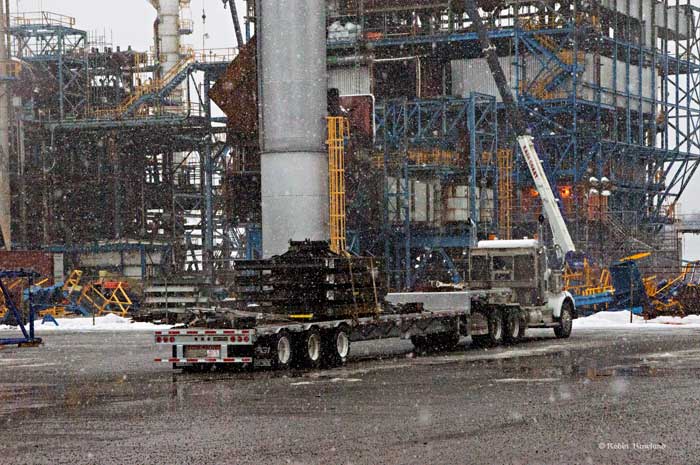Updated
Enbridge late Wednesday, March 28, 2012, issued a statement saying that a story in the National Post/Financial Post that PetroChina could bid to build the Northern Gateway pipeline is “speculation.”
In PetroChina bids to help build $5.5-billion Northern Gateway pipeline columnist Claudia Cattaneo reported that:
Chinese investment in Canada’s energy sector could move to a new level if PetroChina wins a bid to build the controversial Northern Gateway oil sands pipeline.
The largest of China’s three state-controlled oil companies has expressed an interest in building the $5.5-billion project across the northern Canadian Rockies and is considering purchasing an equity stake, said Pat Daniel, president and CEO of proponent Enbridge Inc.
“They have made the point to us that they are very qualified in building pipelines, and we will take that into consideration when we are looking for contractors,” Mr. Daniel said in an interview. “It’s an open bid process. They are a very big organization, they build a lot of pipelines, and they would love to be involved from what they have told me.”
Within hours, Enbridge Northern Gateway issued its own statement:
To speculate at this time about who might be contracted to build a project that has yet to receive regulatory approval is premature in the extreme.
Construction of Northern Gateway would be through an open bid process, and to be successful any bid would have to meet Enbridge’s stringent requirements and meet all federal and provincial employment standards. Enbridge is firmly committed to hiring as many local people as possible to build and operate Northern Gateway and is not anticipating bringing in overseas workers to construct or operate the project.
“British Columbians and Albertans deserve to know that providing local employment is a top priority for Enbridge Northern Gateway,” said Janet Holder, Executive Vice-President of Western Access and the senior executive in charge of the pipeline project. “Ensuring a local workforce is skilled and work-ready in order to fully participate in, and benefit from, the economic benefits associated with the project is a priority for Northern Gateway.”
The Financial Post report says the Chinese company stands a good chance of presenting a competitive bid, but it is likely that Chinese construction of a major Canadian energy project would increase anxiety among Canadians already worried about China’s expanding ownership of Canadian resources.
While there is a labour shortage in the energy sector at the moment, the Financial Post says Canada could use could use a hand from an experienced Chinese oil company, but turning over construction to PetroChina could mean fewer construction jobs in B.C., “where Northern Gateway is a hard sell because of perceptions the province would bear all the risk of a spill, while the rewards would go primarily to Alberta’s oil sands sector.”
The Enbridge statement also says:
Northern Gateway will shape its hiring and procurement policies so that contractors and sub-contractors working on the pipeline and the proposed marine terminal maximize local hiring and training opportunities, particularly for Aboriginal people – who are expected to comprise approximately 15% of regional construction employment.
An education and training fund of $1.5 million has recently been developed by Northern Gateway. The fund will support flexible community based training associated with the pipeline construction.






